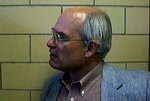Specifically, we wrote:
- Another ethical concern involves informed consent and communication with participants. Because most small–N research involves close and extended contact between researchers and participants, a personal relationship is more likely to develop than in other types of psychological research. The perils of relationship and role confusion in small-N research were evident after Bailey (2003) published a book about transsexuals. After its publication, several of the transsexuals studied accused Bailey of failing to inform them that their interactions with him constituted research. One “participant” claimed that she and Bailey had sex during the time he later claimed he had been observing her as part of his research.
Bailey has been confronted by several critics, the most prominent is Lynn Conway from the University of Michigan. She maintains a Web page investigating the publication of Bailey's book.
An ethics scholar, Alice Dreger, has conducted an investigation of the case. Her report can be found at http://www.bioethics.northwestern.edu/. It will be published soon in the Archives of Sexual Behavior.
The participant who accused Bailey of sexual misconduct did so five years after the alleged incident. Whether or not the incident actually took place has never been determined.
Two of the other participants who complained about being mentioned in the book were not, in fact, mentioned. The other two said they knew their stories would be in the book.
In short, much ado about something has marked this case. We still stand behind our advice, communication and documentation are essential in small-N research. Bailey could have avoided much of what happened had he made things more clear to his participants at the beginning.



No comments:
Post a Comment